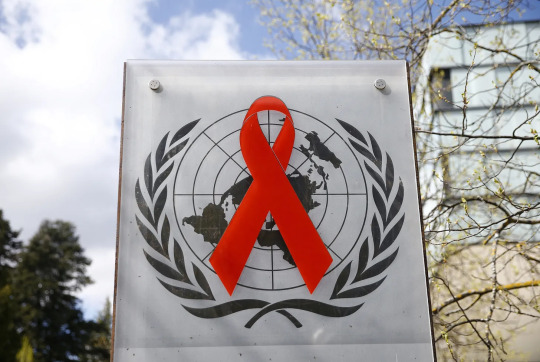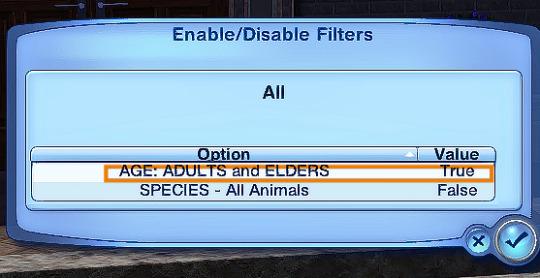#access control system in uk
Explore tagged Tumblr posts
Text
The system works by using a camera to capture an image of a person's face and then processing it through an AI algorithm to identify the person. The algorithm compares the image to a database of known faces and determines whether the person is authorized to access the building or not. If the person is authorized, the system will automatically unlock the door for them.
Access Control System Abu Dhabi
Access Control System uae
Access Control System Dubai
Access Control System in Abu Dhabi
Access Control System Saudi Arabia
Access Control system
access control system suppliers in uae
access control system suppliers in Abu Dhabi
biometric access control system dubai
biometric access control system alain
access control system devices
access control system devices Dubai
access control system devices Abu Dhabi
access control system devices in Bur Dubai
access control system in sharjah
access control system installation
access control system installation Dubai
access control system installation Abu Dhabi
access control system installation in Alain
#access control system in abu dhabi#access control system#access control system in uae#access control system dubai#access control system in ajman#access control system in alain#access control system in bur dubai#access control system in sharjah#access control system in saudi arabia#access control system bur dubai#access control system in uae#access control system in bur dubai#access control system in uk#access control systems uae#access control systems in sharjah#access control system in sharjah
0 notes
Text
A short note here on what I’m covering and why. The political changes we’re seeing across the world are underpinned by technological ones that are now accelerating. For more than a decade, I’ve been trying to investigate and expose these forces. Since 2016 that’s included following a thread that led from Brexit to Trump via a shady data company called Cambridge Analytica and the revelation of a profound threat exploit at the heart of our democracies. But what’s happening now in the US is a paradigm shift: this is Broligarchy, a concept I coined last summer when I warned that what we were seeing was the proposed merger of Silicon Valley with state power. That has now happened. Writing about this from the UK, it’s clear we have a choice: we help lead the fight back against it. Or it comes for us next. Please share this with family and friends if you feel it’s of value. Thank you, as ever, Carole
Let me say this more clearly: what is happening right now, in America, in real time, is a coup.
This is an information war and this is what a coup now looks like.
Musk didn’t need a tank, guns, soldiers. He had a small crack cyber unit that he sent into the Treasury department last weekend. He now has unknown quantities of the entire US nation’s most sensitive data and potential backdoors into the system going forward. Treasury officials denied that he had access but it then turned out that he did. If it ended there, it would be catastrophic. But that unit - whose personnel include a 19-year-old called “Big Balls” - is now raiding and scorching the federal government, department by department, scraping its digital assets, stealing its data, taking control of the code and blowing up its administrative apparatus as it goes.
This is what an unlawful attack on democracy in the digital age looks like. It didn’t take armed men, just Musk’s taskforce of boy-men who may be dweebs and nerds but all the better to plunder the country’s digital resources. This was an organised, systematic, jailbreak on one of the United States’ most precious and sensitive resources: the private data of its citizens.
In 2019, I appeared in a Netflix documentary, The Great Hack. That’s a good place to start to understand what is going on now, but it wasn’t the great hack. It was among the first wave of major tech exploits of global elections. It was an exemplar of what was possible: the theft and weaponization of 87 million people’s personal data. But this now is the Great Hack. This week is when the operating system of the US was wrenched open and is now controlled by a private citizen under the protection of the President.
If you think I’ve completely lost it, please be advised that I’m far from alone in saying this. The small pools of light in the darkness of this week has been stumbling across individual commentators saying this for the last week. Just because these words are not on the front page in banner headlines of any newspaper doesn’t mean this isn’t not happening. It is.
In fact, there has been relentless, assiduous, detailed reporting in all outlets across America. There are journalists who aren’t eating or sleeping and doing amazing work tracking what’s happening. There is fact after fact after fact about Musk’s illegal pillaging of the federal government. But news organisation leaders are either falling for the distraction story - the most obviously insane one this week being rebuilding Gaza as a luxury resort, a story that dominated headlines and political oxygen for days. Or…what? Being unable to actually believe that this is what an authoritarian takeover looks like? Being unsure of whether you put the headline about the illegal coup d’etat next to a spring season fashion report? Above or below the round-up of best rice cookers? The fact is the front pages look like it’s business as normal when it’s anything but.
This was Ruth Ben-Ghiat on Tuesday. She’s a historian of fascism and authoritarianism at New York University and she said this even before some of this week’s most extreme events had taken place. (A transcript of the rest of her words here.)
“It’s very unusual. In my study of authoritarian states, it's only really after a coup that you see such a speed, such obsessive haste to purge bureaucracy so quickly. Or when somebody is defending themselves, like Erdogan after the coup attempt against him, massive purge immediately. So that's unusual. I don't have another reference point for a private individual coming in, infiltrating, trying to turn government to the benefit of his businesses and locking out and federal employees. It is a coup. I'm a historian of coups, and I would also use that word. So we're in a real emergency situation for our democracy.”
A day later, this was Tim Snyder, Yale, a Yale professor and another great historian of authoritarianism, here: “Of course it’s a coup.”
History was made this week and while reporters are doing incredible work, to understand it our guides are historians, those who’ve lived in authoritarian states and Silicon Valley watchers. They are saying it. What I’ve learned from investigating and reporting on Silicon Valley’s system-level hack of our democracy for eight long years and seeing up close the breathtaking impunity and entitlement of the men who control these companies is that they break laws and they get away with it. And then lie about it afterwards. That’s the model here.
Everything that I’ve ever warned about is happening now. This is it. It’s just happening faster than anyone could have imagined.
It’s not that what’s happening is simply unlawful. This is what David Super, an administrative law professor at Georgetown Law School told the Washington Post.
“So many of these things are so wildly illegal that I think they’re playing a quantity game and assuming the system can’t react to all this illegality at once.”
And he’s right. The system can’t and isn’t. Legal challenges are being made and even upheld but there’s no guarantee or even sign that Musk is going to honour them. That’s one of the most chilling points my friend, Mark Bergman, made to me over the weekend.
Last week, I included a voice note from my friend, tech investor turned tech campaigner, Roger McNamee, so you could hear direct from an expert about the latest developments in AI. This week I’ve asked Mark to do the honours.
He’s a lawyer, Washington political insider, and since last summer, he’s been participating in ‘War Game’ exercises with Defense Department officials, three-star generals, former Cabinet Secretaries and governors. In five exercises involving 175 people, they situation-tested possible scenarios of a Trump win. But they didn’t see this. It’s even worse than they feared.
“Those challenges have been in respect of shutting down agencies, firing federal employees and engaging in the most egregious hack of government. It all at the hand hands of DOGE, Musk and his band of tech engineers. DC right now is shell-shocked. It is a government town, USA, ID, the FBI, the Department of Justice, Department of Homeland Security, CIA, no federal agency will be spared the revenge and retribution tours in full swing, and huge numbers have been put on administrative leave, reassigned or fired, and the private sector is as much at risk, particularly NGOs and civil society organizations. The more high-profile violate the law, which is why the courts have been quick to enjoin actions. “So yes, we've experienced a coup, not the old fashioned kind, no tanks or mobs, but an undemocratic and hostile takeover of government. It is cruel, it is petty. It can be brutal. It is at once chaotic and surgical. We said the institutions held in 2020 but behind institutions or people, and the extent to which all manner of power structures have preemptively obeyed is hugely worrying. There are legions ready to carry out the Trump agenda. The question is, will the rule of law hold?”
Last Tuesday, Musk tried to lay off the entire CIA. That’s the government body with the slogan ‘We are the nation’s first line of defense’. Every single employee has been offered an unlawful ‘buyout’ - what we call redundancy in the UK - or what 200 former employees - spies - have said is blatant attempt to rebuild it as a political enforcement unit. Over the weekend, the Washington Post reports that new appointees are being presented with “loyalty tests”.
Musk’s troops - because that’s what they are, mercenaries - are acting in criminal, unlawful, unconstitutional ways. Organisations are acting quickly, taking lawsuits, and for now the courts are holding. But the key essential question is whether their rulings can be enforced with a political weaponized Department of Justice and FBI. What Mark Bergman told me (and is in the extended note below) is that they’ve known since the summer that there would be almost no way of pushing back against Trump. This politicisation of all branches of law enforcement creates a vacuum at the heart of the state. As he says in that note, the ramifications of this are little understood outside the people inside Washington who study this for a living.
And at least some of what DOGE is doing can never be undone. Musk, a private citizen, now has vast clouds of citizens’ data, their personal information and it seems likely, classified material. When data is out there, it’s out there. That genie can never be put back into the bottle.
Itt’s what it’s possible to do with that data, that the real nightmare begins. What machine learning algorithms and highly personalised targeting can do. It’s a digital coup. An information coup. And we have to understand what that means. Our fleshy bodies still inhabit earthly spaces but we are all, also, digital beings too. We live in a hybrid reality. And for more than a decade we have been targets of hybrid warfare, waged by hostile nation states whose methodology has been aped and used against us by political parties in a series of disrupted elections marked by illegal behaviour and a lack of any enforcement. But this now takes it to the next level.
It facilitates a concentration of wealth and power - because data is power - of a kind the world has never seen before.
Facebook’s actual corporate motto until 2014 taken from words Mark Zuckerberg spoke was “Move fast and break things”. That phrase has passed into commonplace: we know it, we quote it, we also fail to understand what that means. It means: act illegally and get away with it.
And that is the history of Silicon Valley. Its development and cancerous growth is marked by series of larcenous acts each more grotesque than the last. And Musk’s career is an exemplar of that, a career that has involved rampant criminality, gross invasions of privacy, stock market manipulation. And lies. The Securities and Exchange Commission is currently suing Musk for failing to disclose his ownership stock before he bought Twitter. The biggest mistake right now is to believe anything he says.
Every time, these companies have broken the law, they have simply gotten away with it. I know I’m repeating this, but it’s central to understanding both the mindset and what’s happening on the ground. And no-one exemplifies that more than Musk. The worst that has happened to him is a fine. A slap on the wrist. An insignificant line on a balance sheet. The “cost of doing business”.
On Friday, Robert Reich, the former United States Secretary of Labor, who’s been an essential voice this week, told the readers of his Substack to act now and call their representatives.
“Friends, we are in a national emergency. This is a coup d’etat. Elon Musk was never authorized by Congress to do anything that he’s doing, he was never even confirmed by Congress, his so-called Department of Government Efficiency was never authorized by Congress. Your representatives, your senators and Congressmen have never given him authority to do what he is doing, to take over government departments, to take over entire government agencies, to take over government payments system itself to determine for himself what is an appropriate payment. To arrogate to himself the authority to have your social security number, your private information? Please. Listen, call Congress now.”
It’s a coup
I found myself completely poleaxed on Wednesday. I read this piece on the New York Times website first thing in the morning, a thorough and alarming analysis of headlined “Trump Brazenly Defies Laws in Escalating Executive Power Grab”. It quoted Peter M. Shane, who is a legal scholar in residence at New York University, “programmatic sabotage and rampant lawlessness.” It was displayed prominently on the front page of the New York Times but it was also just one piece among many, a small weak signal amid the overpowering noise.
There’s another word for an “Executive Power Grab”, it’s a coup. And newspapers need to actually write that in big black letters on their front pages and tell their tired, busy, overwhelmed, distracted, scared readers what is happening. That none of this is “business as usual.”
Over on the Guardian’s UK website on Wednesday, there was not a single mention on the front page of what was happening. Trump’s Gaza spectacular diversion strategy drowned out its quotient of American news. We just weren’t seeing what’s happening in the seat of government of our closest ally. As a private citizen mounted a takeover of the cornerstone superpower of the international rules-based order, our crucial NATO ally, our biggest single trading partner, the UK government didn’t even apparently notice.
The downstream potential international consequences of what is happening in America are profound and terrifying. That our government and much of the media is asleep at the wheel is a reason to be more not less terrified. Musk has made his intentions towards our democracy and national security quite clear. What he hasn’t yet had is the backing of the US state. That is shortly going to change. One of the first major stand-offs will be UK and EU tech regulation. I hope I’m wrong but it seems pretty obvious that’s what Musk’s Starmer-aimed tweets are all about. There seems no world in which the EU and the UK aren’t headed for the mother of all trade wars.
And that’s before we even consider the national security ramifications. The prime minister should be convening Cobra now. The Five Eyes - the intelligence sharing network of the US, UK, New Zealand, Australia and Canada - is already likely breached. Trump is going to do individual deals with all major trading partners that’s going to involve preposterous but real threats, including likely dangling the US’s membership of NATO over our heads all while Russia watches, waits and knows that we’ve done almost nothing to prepare. Plans to increase our defence spending have been made but not yet implemented. Our intelligence agencies do understand the precipice we’re on but there’s no indication the government is paying any attention to them. The risks are profound. The international order as we know it is collapsing in real time.
It’s a coup
We all know that the the first thing that happens when a dictator seizes power is that he (it’s always a he) takes control of the radio station. Musk did that months ago. It wasn’t that Elon Musk buying Twitter pre-ordained what is now happening but it made it possible. And it was the moment, minutes after Trump was shot and he went full-in on his campaign that signalled the first shot fired in his digital takeover.
It’s both a mass propaganda machine and also the equivalent of an information drone with a deadly payload. It’s a weapon that’s already been turned on journalists and news organisations this week. There’s much more to come.
On Friday, Musk started following Wikileaks on Twitter. Hours later, twisted, weaponized leaks from USAID began.
This is going to get so much worse. Musk and MAGA will see this as the opening of the Stasi archive. It’s not. It’s rocketfuel for a witchhunt. It’s hybrid warfare against the enemies of the state. It’s going to be ugly and cruel and its targets are going to need help and support. Hands across the water to my friends at OCCRP, the Overseas Crime and Corruption Reporting Project, an investigative journalism organisation that uncovers transnational crime, that’s been in Musk’s sights this weekend, one of hundreds of media organisations around the world whose funding has been slashed overnight.
It’s a coup
By now you may feel scared and helpless. It’s how I felt this week. I had the same sick feeling I had watching UK political coverage before the pandemic. The government was just going to ignore the wave of deaths rippling from China to Italy and pretend it wasn’t happening? Really? That’s the plan?
This is another pandemic. Or a Chernobyl. It’s a bomb at the heart of the international order whose toxic fallout is going to inevitably drift our way.
My internal alarm bell, a sense of urgency and anxiety goes even further back. To early 2017, when I uncovered information about Cambridge Analytica’s illegal hack of data from Facebook while the company’s VP, Steve Bannon, was then on the National Security Council. That concept of highly personalised data in the control of a ruthless and political operator was what tripped my emergency wires. That is a reality now.
The point is that the shock and awe is meant to make us feel helpless. So I’m telling a bit of my own personal story here. Because part of what temporarily paralyzed me last week was that this is all happening while my own small corner of the mainstream media is collapsing in on itself too. The event that I’ve spent the last eight years warning about has come to pass and in a month, 100+ of my colleagues at the Guardian will be out of the door and my employment will be terminated. I will no longer have the platform of the news organisation where I’ve done my entire body of work to date and was able to communicate to a global audience.
But then, it’s all connected. We are living through an information crisis. It’s what underpins everything. In some ways, this happening now is not surprising at all. Moreover, many of the people who I see as essential voices during this crisis (including those above) are doing that effectively and independently from Substack as I will try to continue to do.
And, the key thing that the last eight years has given me is information. The lawsuit I fought for four years as a result of doing this work very almost floored me. But it didn’t. And I’ve learned essential skills during those years. It was part of what powered me to fight for the rights of Guardian journalists during our strike this December.
The next fightback against Musk and the Broligarchy has to draw from the long, long fight for workers rights which in turn influenced the fight for civil rights that must now power us on as we face the great unknown. What comes next has to be a fight for our data rights, our human rights.
This was former Guardian journalist Gary Younge on our picket line and I’ve thought about these words a lot. You have to fight even if you won’t necessarily win. Power is almost never given up freely.
If you value any of this and want me to be able to continue, I’d be really grateful if you signed up, free, or even better, paid subscription. And I’d also urge you to sign up also for the Citizen Dispatch, that’s the newsletter from the non-profit I founded that campaigns around these issues. There is much more it can and needs to do.
152 notes
·
View notes
Text
The Best News of Last Week
1. ‘It was an accident’: the scientists who have turned humid air into renewable power
Greetings, readers! Welcome to our weekly dose of positivity and good vibes. In this edition, I've gathered a collection of uplifting stories that will surely bring a smile to your face. From scientific breakthroughs to environmental initiatives and heartwarming achievements, I've got it all covered.

In May, a team at the University of Massachusetts Amherst published a paper declaring they had successfully generated a small but continuous electric current from humidity in the air. They’ve come a long way since then. The result is a thin grey disc measuring 4cm across.
One of these devices can generate a relatively modest 1.5 volts and 10 milliamps. However, 20,000 of them stacked, could generate 10 kilowatt hours of energy a day – roughly the consumption of an average UK household. Even more impressive: they plan to have a prototype ready for demonstration in 2024.
2. Empty Office Buildings Are Being Turned Into Vertical Farms

Empty office buildings are being repurposed into vertical farms, such as Area 2 Farms in Arlington, Virginia. With the decline in office usage due to the Covid-19 pandemic, municipalities are seeking ways to fill vacant spaces.
Vertical farming systems like Silo and AgriPlay's modular growth systems offer efficient and adaptable solutions for converting office buildings into agricultural spaces. These initiatives not only address food insecurity but also provide economic opportunities, green jobs, and fresh produce to local communities, transforming urban centers in the process.
3. Biden-Harris Administration to Provide 804,000 Borrowers with $39 Billion in Automatic Loan Forgiveness as a Result of Fixes to Income Driven Repayment Plans

The Department of Education in the United States has announced that over 804,000 borrowers will have $39 billion in Federal student loans automatically discharged. This is part of the Biden-Harris Administration's efforts to fix historical failures in the administration of the student loan program and ensure accurate counting of monthly payments towards loan forgiveness.
The Department aims to correct the system and provide borrowers with the forgiveness they deserve, leveling the playing field in higher education. This announcement adds to the Administration's efforts, which have already approved over $116.6 billion in student loan forgiveness for more than 3.4 million borrowers.
4. F.D.A. Approves First U.S. Over-the-Counter Birth Control Pill

The move could significantly expand access to contraception. The pill is expected to be available in early 2024.
The Food and Drug Administration on Thursday approved a birth control pill to be sold without a prescription for the first time in the United States, a milestone that could significantly expand access to contraception. The medication, called Opill, will become the most effective birth control method available over the counter
5. AIDS can be ended by 2030 with investments in prevention and treatment, UN says

It is possible to end AIDS by 2030 if countries demonstrate the political will to invest in prevention and treatment and adopt non-discriminatory laws, the United Nations said on Thursday.
In 2022, an estimated 39 million people around the world were living with HIV, according to UNAIDS, the United Nations AIDS program. HIV can progress to AIDS if left untreated.
6. Conjoined twins released from Texas Children’s Hospital after successfully separated in complex surgery

Conjoined twins are finally going home after the pair was safely separated during a complex surgery at Texas Children’s Hospital in June.
Ella Grace and Eliza Faith Fuller were in the neonatal intensive care unit (NICU) for over four months after their birth on March 1. A large team of healthcare workers took six hours to complete the surgery on June 14. Seven surgeons, four anesthesiologists, four surgical nurses and two surgical technicians assisted with the procedure.
7. From villains to valued: Canadians show overwhelming support for wolves

Despite their record in popular culture, according to a recent survey, seven in 10 Canadians say they have a “very positive” view of the iconic predators.
Here's a fascinating video about how wolves changed Yellowstone nat'l park:
youtube
----
That's it for this week :)
This newsletter will always be free. If you liked this post you can support me with a small kofi donation:
Support this newsletter ❤️
Also don’t forget to reblog.
1K notes
·
View notes
Text
Using NRaas Master Controller's Filters, Skill Stamps and Hot Keys - Part 1 Filters
This is part 1 of a little (big!) tutorial on how I use filters, skill stamps and hot keys from NRaas Master Controller together in my games. It's also an appreciation post! 😊
See also: Using NRaas Master Controller's Filters, Skill Stamps and Hot Keys - Part 2: Skill Stamps and Hot Keys
Tutorial under the header!

Mods needed for Filters, Skill Stamps and Hot Keys to show up: Master Controller v.135 Master Controller Cheats v.134+
(9th Feb 2025 - desiree-uk correction: Additional mods needed for filters and door locking system (my apologies! 😌) GoHere v.45 Tagger v.5
Filters:
I use filters, skill stamps and hotkeys for various things, mostly to edit bulk sims, refine door locking options, set filters for parties, functions etc and add short-cuts of often-used MC interactions to the NRaas menu when clicking on a sim/household/terrain. Once you know how to set these, you can set as many as you like and use them in a lot of different combinations.
Here are a few examples on how I set them up, but you can name them whatever you like.
MC Interaction: Save Filter Prompts the user to save a custom filter that can be used for Sim queries.
There are already a lot of default filters for sim-criteria like Age, Species, Residents, NPC etc, but I want to set one specifically for Adult and Elder sims together so I can set door options and skill stamps for them (more on skill stamps in Part 2!)
Click on Town Hall/Computer>NRaas>MC>Settings>Filters Click Save Filter - Age - Adult and Elder Oh, also set 'Species' to Human otherwise all adult and elder cats, dogs, horses and the Grim Reaper will show up! I always forget that part. 😄






Name the new filter (e.g AGE: ADULTS and ELDERS) Click Accept ☑ Your new filter will show up in the list of filter criteria.



I only want these sims to use a particular door. You can use the EA door locking system to select sims you want to use the door if you want, but if you want more stringent rules, then the filters are better.
Click on the door>Lock…>Door Options… Click on 'Door Filter Type - Deny Click on 'Enable/Disable Filters' - 0



Click on the new filter you made earlier 'AGE: ADULT and ELDERS Click on it until it shows 'True'. Click Accept ☑

On the previous dialog box you'll now see the 'Door Filter Type: Allow' and 'Enable/Disable Filters: 1' You'll also see two new options 'List Sims Allowed Through' and 'List Sims Denied Access'.

Click on them to double check you have the right sims listed. ALL human adult and elder sims are showing up in the 'Allowed..' list. The 'Denied Access' list should show all the baby, child, teen and YA humans and pets. (Allowed: 1st picture. Denied: 2nd picture)



You can set any filter with as many different criteria as you want. When you set a filter with more than one criteria and you specifically want that sim to use the door e.g a YA female, with the charisma skill level 2, make sure to set 'Match All Active Filters' to 'True' (above screenshot) so only a young adult, female sim, with a charisma skill of 2 can use the door. If the 'Match All…' option isn't set, then any YA sim or any female sim or any sim with the charisma skill of 2 can use the door - it's more flexible.
~~~~~~~~~~~~~~~~~~~~~~~~~~~~~~~~~~~~~~~~~~~~~~~~~~~~~
In the next part, I'll be showing how I use skill stamps together with filters and hot keys!
Click for part 2: Using NRaas Master Controller's Filters, Skill Stamps and Hot Keys - Part 2: Skill Stamps and Hot Keys
#ts3 mod info#ts3 test gameplay#ts3 gameplay#nraas#phoebejaysims#arro#ts3 tutorial#sims3#ts3#ts3 mod
126 notes
·
View notes
Text
The Cass Report is fatally flawed in its methodology, and as a result, its recommendations are harmful. Speaking on behalf of TransActual, Keyne Walker said: “It undermines the legal competence of both children and adults to access medical treatment and dismisses almost all existing clinical evidence on trans people’s healthcare by applying impossible evidence standards which, if applied to other medicines would invalidate more than three quarters of the existing treatments used in paediatric care which, like puberty blockers, are currently being prescribed off-label.” The report’s primary conclusions rest on excluding 98% of the relevant evidence on the safety and efficacy of puberty blockers and hormones for lack of blinding and controls. What this means is that they require studies in which some patients are given the treatment, and others are unknowingly given placebos. This is not only a clear breach of medical ethics and monstrous suggestion, but also impossible due to the obviousness of the impacts of puberty blockers and hormones. The report also strays far beyond its scope and competence in recommending a review of adult services and in suggesting that young people ought to stay under the care of children and young people’s services until the age of 25. The latter is based on highly questionable understandings of brain development which have been repeatedly debunked as an oversimplification of the constant changes in human neurology over the course of our lives. This recommendation, especially in a context of an already broken system of care for both adults and children, has the potential to have a significant negative impact on the lives and wellbeing of trans people in the UK. Underpinning this report is the idea that being trans is an undesirable outcome rather than a natural facet of human diversity. This is clear not only from the recommendations but also from the exclusion of trans researchers from the design of the review process and the links individual members of the research team have to anti-trans groups, which the Cass team were warned about. Download the full briefing
234 notes
·
View notes
Text
Also preserved on our archive! (<-follow this link to access more than 1,000 news and opinion articles about covid and more!)
By Dr. Merrilee Fullerton
The U.K. COVID Inquiry is creating a much-needed push to update Infection Prevention & Control (IPAC) guidelines with respect to the predominant mode of transmission of SARS-CoV-2.
COVID has finally begun to be acknowledged as an airborne disease, but policy hasn't kept up on the issue of aerosol spread, including how to deploy HEPA, UVC, masking protocols and other measures. Successful mitigation hinges on accurately identifying the mode of transmission as early as possible and clearly communicating appropriate guidance.
It’s not that washing hands is bad or should be stopped. It’s just that it shouldn’t be the main message or relied upon to address the transmission of COVID in a meaningful way.
Thorough updating of Public Health and IPAC guidelines with new scientific knowledge surrounding airborne spread is required along with more room for critical thinking and speed during responses to outbreaks of infectious disease such as COVID.
Accurately identifying the mode of transmission is not just an academic exercise. It is key to mitigating death, disease, and disability related to COVID as well as avoiding the massive toll on productivity and the economy that this disease has taken.
There are pivotal lessons to be learned through the U.K. COVID Inquiry which has been ongoing for a couple years, but it has only recently reached Module 3: The Impact of the COVID Pandemic on Healthcare Systems of the U.K. Included in this are issues surrounding transmission mechanisms and Long COVID.
Much can be learned from the U.K. Inquiry. Our Canadian experiences responding to COVID had many parallels to those of the U.K. Countries around the world were similarly impacted since most were following the advice and guidance produced by the World Health Organization which consistently repeated — erroneously — that COVID was not airborne.
The U.K. has proven to be transparent about peeling back the layers of Public Health measures and delving into scientific misunderstandings with respect to the spread and potential mitigation of SARS-CoV-2. The U.K. COVID Inquiry is being chaired by retired judge Baroness Heather Hallett who promised the inquiry would be thorough and fair. Lady Hallett has already provided the first report of the inquiry indicating “fatal strategic flaws” and calling for an overhaul of the national civil emergencies system with ten recommendations, including “a radical simplification of civil emergency preparedness and resilience systems.”
She also recommended external teams should regularly challenge groupthink on the principles, evidence and advice on emergency plans. An important point in the Executive Summary is as follows:
"Advisers and advisory groups did not have sufficient freedom and autonomy to express dissenting views and suffered from a lack of significant external oversight and challenge. The advice was often undermined by ‘groupthink’.”
This is a relatable point as I refer to Chapter 4 in my book, notably pages 74 to 83, where I describe the challenges I experienced in conveying my concerns about SARS-CoV-2 early in the pandemic, including the risk and likelihood of COVID being an airborne disease.
A major independent report by expert witness Professor Clive Beggs was provided to the Inquiry for Module 3. Beggs’ report is essential reading for anyone interested in the COVID pandemic response and future pandemic planning. See below for a series of excerpts highlighting the most significant findings.
Meanwhile, in Canada, instead of calling for a national inquiry into our own COVID response, the federal government has created another agency. On Sept. 24, 2024, federal Ministers of Innovation, Science and Industry, and Health announced the launch of Health Emergency Readiness Canada (HERC).
The official announcement outlined key features of HERC once it is operational:
Integrated decision making to build life sciences capacity
Strengthened partnerships with industry, academia and international counterparts
The development and maintenance of a Canadian industrial game plan to mobilize research and industry in the event of a health emergency
World-leading innovation to advance next-generation technology platforms
Sounds nice, but how about accurate and timely identification of the main mechanism of transmission and being open to hearing from highly qualified people who disagree rather than engaging in groupthink?
Critical thinking and swiftness are not often features of expanding bureaucracies and, too often, people within large bureaucratic structures must go along to get along to move up the hierarchy. Different perspectives may be seen as a nuisance, or even adversarial to the bureaucracy's stated aims. The ability to be agile in response to rapidly changing circumstances is critical, even foundational, but it's wholly unaddressed by grafting yet another agency onto our suite of existing agencies.
Recall that in 2004 a previous federal health agency was created with a mission to promote and protect the health of Canadians in response to the 2003 SARS crisis: PHAC.
The Public Health Agency of Canada was created to provide “clear federal leadership on issues concerning public health and improved collaboration within and between jurisdictions.” SARS-CoV-2 and the massive multi-year COVID pandemic, which is still ongoing, puts much doubt on PHAC’s ability to do what it was designed to do.
How about another agency then? And no information regarding costing or the additional staff.
HERC is intended to “bridge the gap between research and commercialization, meaning Canadians could get faster access to most relevant and effective vaccines, therapeutics, diagnostics and other products, including when they need them the most."
Faster access is certainly important, but will another layer of bureaucracy really speed up access and do what Health Canada and PHAC could not?
Health Canada was relatively slow in approving much-needed rapid antigen tests for COVID early on, when other countries had already done so. It’s hard to believe that slow bureaucratic processes will become faster with even more bureaucratic processes.
---
Dr. Merrilee Fullerton is the former Ontario Minister of Long-Term Care. Her book chronicling her time in politics, including the events surrounding Ontario's early pandemic response, can be read here.
---
I leave you with a series of excerpts from the UK COVID-19 Inquiry Module 3 concerning significant points from Professor Beggs' report. I expect Baroness Hallett will have recommendations pertaining to the airborne nature of COVID-19 and the failure of Public Health and IPAC to appropriately address the virus' mode of transmission.
Page 24, paragraph 54 and 55:
“While primarily focused on SARS-CoV-2, the discussion here is equally applicable to other respiratory viruses, such as influenza, as well as to TB. Historically, this subject has been largely neglected by the mainstream IPC community, with the result many misconceptions and erroneous ‘facts’ have crept into scientific literature, (culminating) in the WHO and the Centers of Disease Control and Prevention (CDC) denying in 2020 that SARS-CoV-2 could be transmitted by the airborne route. Therefore, in order to learn lessons from the Covid-19 pandemic, it is important to understand how infectious respiratory particles behave once they have been exhaled into room air."
"... this affords the opportunity for NPIs, such as improved room ventilation and air cleaning, to reduce the viral load and thus mitigate the risk of transmission.”
Page 36, Fomite and contact transmission of respiratory viruses, “Key findings:"
-It was assumed ... that contact transmission was a major contributor to transmission, but there was little evidence of this from studies of other respiratory viruses.
-Evidence for the effectiveness of handwashing in Covid-19, influenza and other respiratory viruses is mixed, showing only modest benefits.
-Transmission through the air is likely more important than contact routes, though occasional contact transmission is also possible.
-The assumption that contact routes are a major contributor to transmission was flawed, and led to many IPC policy-makers, practitioners and researchers requiring a higher standard of causal evidence to accept that airborne transmission was occurring than they required for contact transmission.
Page 41, paragraph 105:
“... evidence largely does not support the historical assumption that the contact and fomite routes make a major contribution to the transmission of respiratory viral infections. Indeed, the authors of the two 2011 PIP reports on influenza both concede this ... stating: "Since the role of hands in the transmission of influenza has actually never been demonstrated, one may hesitate to attribute a great proportion to this pathway.'"
"... it is surprising that at the start of the Covid-19 pandemic, the default assumption amongst the IPC and public health professionals was that the fomite and contact routes made a major contribution to SARS-CoV-2 transmission ... the first confirmed epidemiological association between surface contamination and the transmission of SARS-CoV-2 did not emerge until 2023 ...”
Page 46 and 47, paragraph 115 and 118:
"Many medical and IPC professionals have misconceptions regarding the nature and behaviour of infectious respiratory aerosols. These misconceptions are historical, widely accepted and often repeated in medical textbooks and in scientific papers, despite being factually incorrect."
"While the historical controversy surrounding droplets and aerosols might appear rather academic, in reality, the misconceptions held by the medical community on this subject had a far-reaching impact on the preparedness of the UK and the world for the Covid-19 pandemic, as well as on the IPC measures adopted and the PPE used."
"... IPC advice issued in the UK (and overseas) during 2020 and much of 2021 focused on prevention of SARS-CoV-2 transmission via the droplet, contact and fomites routes, rather than through aerosols."
Page 112, selected Recommendations:
- "i. A more multidisciplinary approach should be taken to future pandemic preparedness by the UK Government, including but not limited to hospital IPC. This should specifically include scientific advice from experts in the physical sciences ..."
-"iv. ... In particular, the duration of time that someone is exposed is of critical importance and should be acknowledged in guidance."
-"vi. There is a need for further multidisciplinary research to better understand how air and infectious aerosols move around hospital wards, so that appropriate strategies and standards can be developed for hospital ventilation systems to mitigate the transmission of infection."
"vii. There is a need for robust evidence and guidelines on the deployment of portable supplementary air cleaning devices (both HEPA and UVC devices) in hospitals, before and during the next pandemic. The evidence base in support of portable HEPA devices, in particular is reasonably strong."
"ix. ... guidelines need to consider the risks posed by patients and HCWs with regard to Covid-19 and influenza on general wards and in non-clinical areas such as waiting and staff rooms, so that prescribed ventilation regimes fulfil their role in the hierarchy of IPC controls to ensure that viral loads in the room air are maintained at safe levels.
"They also need to consider the role that CO2 monitoring might play in ensuring that day-to day ventilation rates in clinical and non-clinical spaces are maintained at appropriate levels."
#mask up#covid#pandemic#covid 19#wear a mask#public health#coronavirus#sars cov 2#still coviding#wear a respirator#UK Covid Inquiry#covid inquiry#covid informed#covid in 2024
53 notes
·
View notes
Text
I came across the surname Baskerville in a text completely unrelated to Sherlock Holmes (in a book about wild camping), and it's gives some really interesting insight into the history and present state of UK inherited titles and landownership so thought I would share!
'William the Conqueror invaded England in 1066 and then made himself king. It was like any other invasion of conquest, in any other time or realm. King Harold the Second was dead. Long live the King. Life goes on. But there was a difference. New laws saw all of the land seized by the Crown - a relatively unique development in the history of conquest. Sasxon barons were replaced by the Norman lords and their allies. The Domesday Book - the most definitive land registery document every devised - was produced on William's orders in 1086 to identify the new owners and their land holding and what they might owe, in tax, favour and loyalty, to the king: the sovereign Landlord.
Landownership had worked broadly in the same way ever since our ancestors abandoned the nomadic life, and took up the shovel and plough about 10.000 BC. What the Normans changed in Britain was the communal right of access over the land. That system of non-communal access is still very much in force today amoung the modern-day descendents of the Normans. Which is why William's 1086 census - the Domesday Book (and its modern version, the Land Registry) - remains so important. It serves as a legal document that established ownership by the legal holder of the title.
My research into where I could roll out a sleeping bag today meant looking at landownership. I discovered that very little had changed sinde the Norman invasion. Just 0,6 per cent of the population still owns 50 per cent of the British land, and most of this elite are the descendants of the 11th-century Norman aristocracy.
A report - "Who owns Britain?' - by Country Life magazine in 2010 was said to be the most detailed survey of its kind in over 100 years. The research claimed that just 1200 aristocrats and their families own 20 million of Britain's 60 million acres of land. The top private landowner in Europe was the Duke of Buccleuch and Queensberry, who owned 240.000 acres in England and Scotland. Research by the London School of Economics in 2013 claimed that the Normans who conquered England - with surnames Baskerville, Darcy, Mandeville and Montgomery - still dominate the student rolls for Oxford and Cambridge universities, still make up a large proportion of the elite that holds the prime positions in professions such as medicine, law and politics. They also control a good number of the political agencies, public bodies and charitable organisations that oversee rules regulating land management and access.
But 1066 was about more than Saxon lords losing their holdings. It was how it affected the peasants that mattered most. The common rights over common lands like Sherwood Forest and the Kentish Weald were gone. Those rights included the right to roam over woodlands, marshes, moors and coasts of many common areas; to graze animals, collect wood for fuel, tools and buildings, to eat fruits, to collect water from rivers and streams, to catch fish and generally to do all the things that made it possible to live off the land."
From: Wild camping. Exploring and sleeping in the wilds of the UK and Ireland, by Stephen Neale, page 29
I've been to the UK several times for hiking trips, and I remember being puzzled by the system of access to nature at first. It is quite bewildering to be just walking on a perfecty good path, only to suddenly find it fenced off, with aggressive signs warning walkers to KEEP OUT!!! Why are hikers treated with so much suspicion even in areas famous for its good hiking? And what do you mean by Right of Way? How come there's major roads and motor cross terrains within a national park? (turns out they are largely privately owned). Myself, I've never been shy to climb the occasional wall or fence, and pitch my tent somewhere even on private lands. I consider it my own gentle way of resisting the very idea of private property, which creates so much inequality. I've never yet faced any trouble for it, by the way. Turns out land owners have little desire to actually hike on their lands, especially in rain or cold or darkness, and the people who work for them are usually not payed enough to care about a lonely hiker who is causing no disturbance or damage whatsoever xD
#letters from watson#sherlock holmes#the hound of the baskervilles#history#land ownership#wealth inherence#uk#common access laws
24 notes
·
View notes
Text

House of Huawei by Eva Dou
A fascinating insight into a Chinese telecoms giant and its detractors
Huawei is not exactly a household name. If you’ve heard of it, you either follow the smartphone market closely – it is the main China-based manufacturer of high-end phones – or else consume a lot of news, because the company is at the centre of an ongoing US-China trade war.
But this enormous business is one of the world’s biggest producers of behind-the-scenes equipment that enables fibre broadband, 4G and 5G phone networks. Its hardware is inside communications systems across the world.
That has prompted alarm from US lawmakers of both parties, who accuse Huawei of acting as an agent for China’s government and using its technology for espionage. The company insists it merely complies with the local laws wherever it operates, just like its US rivals. Nevertheless, its equipment has been ripped out of infrastructure in the UK at the behest of the government, its execs and staffers have been arrested across the world, and it has been pilloried for its involvement in China’s oppression of Uyghur Muslims in Xinjiang.
Into this murky world of allegation and counter-allegation comes the veteran telecoms reporter Eva Dou. Her book chronicles the history of Huawei since its inception, as well as the lives of founder Ren Zhengfei and his family, starting with the dramatic 2019 arrest of his daughter Meng Wanzhou, Huawei’s chief financial officer, at the behest of US authorities.
Dou’s command of her subject is indisputable and her book is meticulous and determinedly even-handed. House of Huawei reveals much, but never speculates or grandstands – leaving that to the politicians of all stripes for whom hyperbole about Huawei comes more easily.
At its core, this book is the history of a large, successful business. That doesn’t mean it’s boring, though: there’s the story of efforts to haul 5G equipment above Everest base camp in order to broadcast the Beijing Olympics torch relay. We hear about the early efforts of Ren and his team, working around the clock in stiflingly hot offices, to make analogue telephone network switches capable of routing up to 10,000 calls; and gain insights into the near-impossible political dance a company must perform in order to operate worldwide without falling foul of the changing desires of China’s ruling Communist party.
Dou makes us better equipped to consider questions including: is this a regular company, or an extension of the Chinese state? How safe should other countries feel about using Huawei equipment? Is China’s exploitation of its technology sector really that different to the way the US authorities exploited Google, Facebook and others, as revealed by Edward Snowden?
Early in Huawei’s history, Ren appeared to give the game away in remarks to the then general secretary of the Communist party. “A country without its own program-controlled switches is like one without an army,” he argued, making the case for why the authorities should support his company’s growth. “Its software must be held in the hands of the Chinese government.”
But for each damning event, there is another that introduces doubt. The book reveals an arrangement from when Huawei operated in the UK that gave GCHQ unprecedented access to its source code and operations centre. US intelligence agencies seemed as able to exploit Huawei equipment for surveillance purposes as China’s. While Huawei’s equipment was certainly used to monitor Uyghur Muslims in Xinjiang, it was hardware from the US company Cisco that made China’s so-called Great Firewall possible.
Anyone hoping for definitive answers will not find them here, but the journey is far from wasted. The intricate reporting of Huawei, in all its ambiguity and complexity, sheds much light on the murky nature of modern geopolitics. The people who shout loudest about Huawei don’t know more than anyone else about it. Eva Dou does.
Daily inspiration. Discover more photos at Just for Books…?
9 notes
·
View notes
Text
There is much concern that Elon Musk’s Starlink intends to provide satellite internet coverage to the United States following the failure of its Red Sea “Operation Prosperity Guardian” alliance to curb Yemen’s pro-Palestinian front.
This conversation has gained traction since the company’s announcement on 18 September that it would launch services in Yemen after months of informal contracts with the Saudi-backed government in Aden. The timing of this announcement raised eyebrows, especially as it coincided with Israel’s terrorist attacks in Lebanon, involving exploding pagers and walkie-talkies.
[...]
The announcement that Yemen would be the first country in West Asia to have full access to its services surprised many – particularly because the US embassy in Yemen was quick to praise the move as an “achievement” that could unlock new opportunities.
[...]
The rival Sanaa government, under which most of Yemen’s population lives, was quick to warn that the Starlink project may threaten Yemen and its national security. Mohammed al-Bukhaiti, a member of Ansarallah’s political bureau, criticized the US embassy’s stance, which he says:
"Confirms the relationship between the launch of Starlink and the war launched by America on Yemen, which threatens to expand the conflict to the orbits of outer space for the first time in history."
[...]
In March, the Financial Times reported that the US and UK faced intelligence shortfalls in their Red Sea campaign, particularly around the capabilities of the Ansarallah-aligned forces’ arsenal. This intelligence gap underlined the west’s need for a reliable spy network, and Starlink’s role in this context raises serious questions.
A Reuters report revealed that SpaceX had signed secret contracts with the US Department of Defense aimed at developing a spy satellite system capable of detecting global threats in real-time.
[...]
Another concerning aspect is the involvement of Israel. Israel’s spy satellites, OFEK-13 and OFEK-14, are reportedly linked to Starlink’s satellite network. SpaceX, as a third party, may provide critical guidance and intelligence to these satellites, further enhancing Tel Aviv’s surveillance capabilities in the region. This connection between Starlink and Israeli intelligence efforts has heightened fears in Yemen that the satellite network will be used to undermine the country’s security and sovereignty.
Currently, Starlink services are available primarily in Yemeni areas controlled by the Saudi and UAE-led coalition, although roaming packages allow temporary access in other regions. This has prompted concerns about data security, privacy, and the spread of misinformation, as unrestricted satellite internet bypasses local government control.
[...]
Moreover, cybersecurity risks are particularly troubling, as the network might be exploited for dangerous purposes, including facilitating terrorist activities like bombings. The presence of a global satellite internet service that bypasses local regulations raises concerns about its potential to disrupt local internet infrastructure.
Starlink could also introduce unfair competition to local provider Yemen Net, further marginalizing the national telecom provider and hindering local development efforts.
[...]
Dr Youssef al-Hadri, a right-wing political affairs researcher, shared his views with The Cradle on the recent events in Lebanon and the ongoing electronic warfare involving the US and its allies. According to Hadri, intelligence agencies operating in areas under the control of the Sanaa government face challenges in detecting the locations of missiles, drones, and military manufacturing sites.
This shortfall became even more apparent after a major intelligence operation exposed a long-running spy cell in Yemen, with activities spanning across multiple sectors.
From the risk of espionage to the undermining of local telecom providers, the implications of Starlink’s operations extend far beyond providing internet access – they could become a vehicle for foreign influence and control.
[...]
3 Oct 2024
13 notes
·
View notes
Text

Did you know the USAF F-4 Phantom II variant had to be designated the F-110 Spectre? The Century Series Fighter that Never Was
The F-4C Phantom II
Before the F-4C: the F-110A Spectre, the Century Series Fighter that Never Was
In response to Navy requirements for a high-altitude interceptor to defend carriers with long-range air-to-air missiles against attacking aircraft, McDonnell Aircraft Company delivered the F4H (later redesignated F-4) Phantom II. The aircraft’s maiden flight occurred in 1958 with deliveries to Navy and Marine Corps squadrons beginning in 1960. Its performance and versatility eventually attracted the interest of the US Air Force (USAF).
As explained by Peter E. Davies in his book Gray Ghosts, U.S. Navy and Marine Corps F-4 Phantoms, a small number of the first F-4Bs to enter Navy service also eased Phantom’s introduction to the USAF. Faced with the incontrovertible fact that it was better than any of the Air Force’s own fighters Tactical Air Command (TAC) borrowed two F4H-1s (BuNos 149405 and 149406) in 1962 for a seventeen-week evaluation. They toured USAF bases, including Bentwaters in the UK (BuNo 149406) during 1962 to show the troops what their new fighter looked like. The F-4B had already made an impressive debut at the Paris Salon the previous year. Both were formally transferred to the Air Force and given new serials (149406 became JF-4B 62-12169).
A further 27 F-4Bs were “bought” from the Navy order for S 147.8 m on the understanding that the Navy would have them back once the USAF’s Phantom variant, the F-4C began to roll off the line.
F-4 model

This model is available in multiple sizes from AirModels – CLICK HERE TO GET YOURS.
Originally, under the pre-McNamara designations, the USAF F-4 variant had to be designated the F-110 Spectre. Later to clear up confusion of the different designations both designs (Navy/USMC and USAF) were named Phantom II.
There were inevitable changes to the design for the production F-4C, but they were comparatively minor.
The F-110 Spectre
Structurally, the wing root of the F-4B was thickened to accept wider (11.5 inch) wheels with anti-skid brakes on the main gear in place of the 7.7 “skinny” F-4B tires. Anti-skid brakes didn’t appear on Navy Phantoms until F-4J BuNo 157242 and up. Ground attack capability was enhanced by the AJB-7 bombing system, and cartridge-starting J79-15 engines were used. A control column appeared in the back cockpit, as both crewmen were regarded as pilots. The in-flight refueling system was converted to the standard Air Force flying boom system.
Under the command of record-breaking test pilot Colonel Pete “Speedy” Everest, the “borrowed” F4H- 1s equipped the 4453rd Combat Crew Training Wing at MacDill AFB, Florida, from Jan. 1, 1963, training crews for the 12th TFW until “real” F-4Cs began to arrive in November. RIOs, known initially as Pilot Systems Operators (PSOs) in the Air Force and later as Weapons Systems Operators (WSOs) found the removable control column in the rear cockpit an uncertain advantage.
Unlike the F-4C’s stick it had to be unplugged and stowed before the radar controls could be slid out for use. Interestingly, “front seaters” were required to do time in the back to study the radar interception task. This twin-stick approach enabled the backseater to take control of the aircraft, but with no access to controls for the landing gear or brakes. The F-4C also had rudimentary throttle controls, but the backseater still could not land the aircraft alone.
Robin Olds Operation Bolo F-4C print

This print is available in multiple sizes from AircraftProfilePrints.com – CLICK HERE TO GET YOURS. Col. Robin Olds’ F-4C Phantom II FP/63-7680, as it appeared during Operation Bolo, January 2, 1967 – note the missing chin pod, which was not yet retrofitted at the time of Operation Bolo.
TAC Evaluation of the F-110 Spectre
The Air Force had some early adaptation problems with the F-4B’s Martin-Baker H5 ejection seats, which were more complex than anything they were used to. Two fatalities and a serious injury to MacDill personnel resulted from failure to appreciate that the “banana-link” mechanism located on top of the seat could initiate ejection if moved or compressed with the seat armed. In one case an F-4B’s seat which had been inadequately secured slid up the rail during a negative g maneuver, fired the canopy jettison device, departed the cockpit, and then slid back along the fuselage. Fortunately, the pilot’s parachute also deployed and he survived.
Unlike their Navy and Marines counterparts, the USAF F-4 crews were not on Alert during the Cuban crisis. However, Phantom crews from all three services were soon to find plenty of action, much further away in South East Asia.
Photo credit: U.S. Air Force
Dario Leone
Dario Leone is an aviation, defense and military writer. He is the Founder and Editor of “The Aviation Geek Club” one of the world’s most read military aviation blogs. His writing has appeared in The National Interest and other news media. He has reported from Europe and flown Super Puma and Cougar helicopters with the Swiss Air Force.
@TheAviationist.com
7 notes
·
View notes
Text
Right-to-buy council houses without specifically only releasing housing that already had a replacement built was of the most notable ways of the *many* that Thatcher et al screwed the UK.
I’d love to have a law put in place that landlords either have to sign contracts to provide housing under council house-type contracts with rent controls to people on housing benefit etc, or sell to the local council at compulsory purchase prices.
Same for all the houses not being lived in - use to house people under contractual controls, or have to sell to the council housing central fund.
Personally I’d start converting all the office units that are no longer needed because so many people are working remotely now into housing too.
Same for the huge city centre shops - I’m not sure if the pattern repeats elsewhere, but I live near Glasgow and the city centre has basically died since Covid. No one is renting the huge retail stores and the place is full of unhoused folk, which is a fucking scandal. So convert them into housing; let the buildings see use, and let those folks get off the streets. Pets and kids specifically allowed too - get families out of one-room shelters and into proper homes of their own.
I’ve heard that there would be issues putting in water infrastructure, but given the place is literally crumbling already and usage in so many areas is so low that having workers digging up the streets to install water lines wouldn’t cause enormous disruption, the time to do this is *now*. Build rainwater catchment and purification systems on roofs too - we get so much rain in the UK it’s kind of ridiculous not to use it! Some of that could go directly to drip irrigation in gardens, but plenty could go right into the houses/flats too. And of course this would provide tons of jobs in construction, architecture, planning etc etc.
Install gardens and green spaces around the place while you are doing this - offer some at low rent, or to buy cheaply, to market gardeners, but specifically put spaces in for communal gardens with the idea of offering allotments and encouraging people to grow their own food.
Put solar panels on every roof and integrate spaces for smaller wind turbines amongst the houses too. Huge storage batteries in basements to make the new blocks as low-footprint and self-sufficient as possible power-wise.
It would be a *fantastic* opportunity to create genuinely accessible housing - office buildings and shops already have lifts and wide corridors ideal for wheelchairs and other mobility devices, so keep that in the design when creating housing. There is a hidden epidemic of houselessness amongst disabled people and older folk with mobility needs, so create low-rent council housing that specifically fits those needs there.
It would regenerate the areas - all the smaller shopfronts not suitable for housing conversion would fill up with people offering the things people in residential neighbourhoods need, with a guaranteed payer base. People on low incomes *use* all of their incomes on necessities, so small businesses selling those necessities will do well. Offer small businesses low rents to provide those necessities. Any that don’t fill up, offer to charities and use for council staff offering the aid and advice people transitioning into housing actually *need*.
Carers are generally low-paid - so this would be an opportunity to offer them cheap housing close to a huge client base in the new accessible housing. No need for low-paid, mostly-female workers to dash constantly between clients in cars. They could walk to work and walk in between clients, who would also no longer be trapped in inaccessible homes, so people who are not actually bedbound would hopefully be less housebound.
Put rooms in the blocks for communal and co-op activities to reduce isolation - with the lifts and wide corridors, even people who are functionally housebound are likely to be able to make it to a room in their own building, and even quite young children could get to those places safely on their own if their parents are working. Wraparound childcare, paid and informal, near where folks actually live.
City centre areas that are now largely dead other than unhoused people, with limited and decreasing zero economic activity taking place and a decreasing incentive for businesses to set up there rather than in out-of-town retail parks people need to drive to, would become vibrant communities with every incentive for businesses to set up there, particularly for the small businesses that still employ the majority of people.
It wouldn’t take a lot to extend this model to transform those out-of-town business parks that are currently largely empty either; nothing says the businesses that are still there would need to move, and they would have a huge new pool of potential employees living within easily walkable distance, though there would need to be oversight to make sure places like Amazon didn’t attempt to buy them up and turn them into company housing. There would need to be a little more investment to provide green transport links like electric buses and trains so that it would be easier for small businesses to move in to provide services, but given the tax income that would result and the reduction in pollution the investment would probably pay itself back within a decade or so.
#a queer crip grows#housing#housing crisis#solarpunk#solutions#solutions to climate crisis#walkable communities#walkable cities#urban gardening#urban food growing#providing housing#ending homelessness#climate friendly#climate crisis#the future is accessible#accessibility#accessible cities#accessible communities
82 notes
·
View notes
Text
I was 12 years old when the far-right English Defence League (EDL) marched through my town of Luton. Teachers at my all-boys, majority Muslim state comprehensive told us to stay indoors. We were overwhelmingly working-class, the children of taxi drivers and factory workers for whom racist violence was a regular occurrence.
Many of us aligned with people organising the counter-demonstrations against the EDL and soon found other common ground. Alongside antifascism, the activists were vocal on foreign policy issues such as Iraq and Palestine, as well as the domestic issue of austerity.
When I visited my old school recently, I found very different political alliances. Teachers expressed concern about the growing influence of rightwing figures such as Andrew Tate. The influencer is part of a wider network, known loosely as the “manosphere”, which comprises anti-woke culture warriors, get-rich “crypto bros” and Donald Trump supporters. Here were young Pakistani and Bangladeshi boys taking part in a community that includes many who openly despise them. For example, Tate has previously met Tommy Robinson “untold times”, and in a 2022 interview he claimed that the EDL co-founder was “doing his very best to protect England from Islamisation”. To the surprise of many, later that year Tate converted to Islam.
It’s easy to understand the appeal of these influencers, who pose as self-help gurus, speaking directly to insecure young men of all races seeking to live better lives. The growing mental health crisis among young people and the longstanding stigma attached to any discussion of it in the Muslim community leads many vulnerable young men to seek solace in the words of influencers whose videos reference depression, anxiety and how to find motivation to move forward in life.
These young men quickly become enamoured of influencer lifestyles and seek to emulate them. Tate, in fact, grew up on the deprived Marsh Farm estate in Luton, and flaunts his money and flashy cars to impressionable young people. Crypto bros, made hyper-accessible through YouTube, TikTok and Instagram, actively encourage followers to invest in stocks and shares. A year-nine student approached me after I had given a talk at my former school and asked: “How do I become a millionaire without going to school?”
These young people are entering into an economy that is unequal, a society that is atomised and workplaces that are insecure. The idea that you can rise with your class rather than out of it has all but vanished. In Luton, nearly half of children are growing up in poverty. When ethnicity is factored in, figures show that in the UK, 67% of Bangladeshi children and 58% of Pakistani children are living in poverty. Like many areas of Britain, our town has been affected by deindustrialisation, cuts to public services and the resulting loss of social infrastructure. The decline in these spaces – youth clubs, libraries and community centres – has meant a decline in social interaction, too; the void has been filled by social media platforms.
During the Jeremy Corbyn years, many young people had a sense of hope that the state could improve their lives. I remember the long queues of young people outside the polling stations in Luton in 2017, and how many registered to vote at the stalls we used to run at the local sixth-form college. Many of us canvassed for the Labour party in Luton and in neighbouring Bedford. We were promised rent controls, the abolition of tuition fees, free travel, free wifi and an increase in the minimum wage.
Now, in the absence of such a project, many are increasingly turning to individual solutions peddled by online influencers. Why dismantle the system when you can become one of its beneficiaries? Why favour higher taxes that might one day come at your expense?
The pipeline for men of colour subscribing to rightwing influencers online to voting for rightwing parties at the ballot box was made clear during the US election. A record 46% of Hispanic voters opted for Trump – a 14-point increase from 2020. Trump also saw modest gains among Black men. Minority communities have suffered from the effects of globalisation, deindustrialisation and decline.
For far too long in the UK, progressives have taken for granted the votes of Black and Asian communities – but recent electoral events and reports show that this is ill-informed. Take Brexit: it is often depicted as the revolt of the white working class, but diverse towns and cities such as Luton, Bradford and Birmingham also voted to leave the European Union. A new report by UK in a Changing Europe shows British Bangladeshi, Black Caribbean and non-white Muslim and Christian voters are particularly likely to hold socially conservative views on issues such as crime and foreign aid in comparison with those from other ethnic or religious groups. Meanwhile, British Indian and Chinese voters are more likely to hold rightwing economic views. Both the former and current Conservative leaders, Rishi Sunak and Kemi Badenoch, are representative of this wider shift. Many ethnic minority voters already hold rightwing views, and we may see this point of view grow in younger generations as the online culture they consume is dominated by the right.
On the Marsh Farm estate where Tate grew up, there is an alternative model of self-help being pioneered by local residents. Marsh Farm Outreach prides itself on collectivism and face-to-face social interaction. Its bottom-up community-organising approach transformed a derelict 17th-century farmhouse into a community hub. The building is now home to a DJing academy for local children excluded from school, Luton’s first Black radio station and a restaurant and bar. Here, on the estate, few young men believe there are any heroes in Westminster coming to save them, but they have found support in a local community.
Bringing young people into their physical communities, and out of their online ones, may be one way to counter the rise of the right. As these young people reach voting age, time is running out for the Labour party.
7 notes
·
View notes
Text
EU’s proposed Chat Control law has become a bone of contention between members of the bloc. First proposed by the European Commissioner for Home Affairs Ylva Johansson in May 2022 as part of bloc’s push to combat child sexual abuse online, the framework of the bill has now come under fire, earning itself a derisive term “Chat Control”.
France, Germany and Poland have particularly refused to accept a clause that allows for mass scanning of private messages by breaking end-to-end encryption. Some tech companies, along with trade associations, and privacy experts have all vehemently opposed the regulation.
On the other hand, Interior Ministers of Spain and Ireland have supported the proposal. Separately, a network of organisations and individuals, advocating for children’s rights in Europe, have lashed out at EU leaders for failing to tackle child sexual abuse online.
What are the concerns of those against the proposal?
Scanning end-to-end encrypted messages has remained a controversial issue. That’s because there is no way to do this without opening risky backdoors that can be accessed by third parties who can exploit the vulnerability, in turn ending the promise of end-to-end encryption.
Tech firms that treaded the encryption bypassing path have have often been made to retreat. In 2021, Apple announced NeuralHash, a feature that could automatically scan iCloud photo libraries of individual devices for child sexual abuse material, or CSAM. Employees and activist groups expressed concerns over the loss of privacy. A year later, Apple said it had abandoned the initiative.
Another looming issue the iPhone maker recognised in the process was how authoritarian governments could potentially misuse the feature by using it as a tool to target individuals who oppose the regime.
Erik Neuenschwander, Director of user privacy and child safety at Apple, admitted this in a note saying, “It would […] inject the potential for a slippery slope of unintended consequences. Scanning for one type of content, for instance, opens the door for bulk surveillance and could create a desire to search other encrypted messaging systems across content types.”
When brining in a similar clause through the UK’s Online Safety Bill, lawmakers attempted to make way for client-side scanning of private and encrypted messages. The proposal was postponed after receiving pushback from encrypted messaging app owners like WhatsApp and Signal. The duo threatened to leave the UK if such a law was passed. In its final stages, in September, 2023, the House of Lords considered the potential security threat that the clause would bring saying it would not implement scanning until it was “technically feasible.”
What is the status of EU’s Chat Control law?
On June 30, a new draft of the proposal is set to be be reviewed. Legislators have now left the idea of scanning text messages and audio, and are instead targetting shared photos, videos and URLs with an adjustment to appease the naysayers.
Another tweak in the making could be people’s consent in sharing material being scanned before being encrypted. But this compromise has been largely called out as a farcical one. A report by Euractiv which has been confirmed by internal documents show that if a user refuses the scanning, they will simply be blocked from sending or receiving images, videos and links hardly leaving them with a choice.
Despite these measures, EU’s enforcement of such regulations have seen exemptions to the rule. In November 2023, the European Commission reportedly published a proposal to amend the regulation on a temporary derogation of the E-Privacy Directive against CSAM. Under the regulation, specific online communications service providers were allowed to sift through or scan messages to detect, report and remove online child sexual abuse material or CSAM and content that solicits children. The regulation is set to expire in early August . The initial plan on the table was to simply extend this regulation for another three years. But, according to media reports, plans for further extensions were stalled in February this year.
Meredith Whittaker, President of Signal app called the measures to assuage concerns as “cosmetic”, and has signed a joint statement along with a group of over 60 other organisations like Mozilla, Proton, Surfshark and Tuta, voicing out her concerns. Whittaker has echoed her earlier warning saying Signal will leave the UK rather than undermine end-to-end encryption.
A blog, co-authored by Riana Pfefferkorn, a research scholar at the Stanford Internet Observatory and Callum Voge, director of government affairs and advocacy at the Internet Society, notes, ”If government surveillance is a concern in an established democratic entity like the EU, what hope is there for beleaguered democracies like Turkey, India and Brazil, much less autocracies?”
7 notes
·
View notes
Text
Correction to my NRaas Master Controller Tutorial! (9th Feb 2025 - desiree-uk - Additional mods needed for filters and door-locking system!
GoHere v.45
Tagger v.5
Apologies to everyone! 😌 I forgot to list two more mods needed for filters and the door-locking system (I assumed everyone already had GoHere and Tagger installed!)
GoHere notes:
* Adds a slew of options to any door, gate, arch under Lock / Door Options.
* Enable/Disable Filters:
* Allows one to use the powerful filter system launched with Tagger on each door in the world to allow/disallow Sims access. * You can have multiple filters enabled at once if you wish.
Requires MasterController version 134+ to work. Both parts of the tutorials are corrected! PART 1 - Using NRaas Master Controller's Filters
PART 2 - Using NRaas Master Controller's Skill Stamps and Hotkeys
53 notes
·
View notes
Text
This is The Farming Left: these land workers share a politics, united by the concept of food sovereignty: the right to control of local food systems, which originated with farmers in the Global South. ‘We’re talking about equitable access to resources to enable localised food supplies’, explains Fernandes. These organisations are tackling the challenges of access to land in an unequal landscape: the Ecological Land Cooperative, for example, purchases large plots and obtains planning permission for dwellings before parcelling them up into affordable smallholdings. The Kindling Trust in Manchester is also seeking to foster a new generation of agroecological farmers. The Trust, which was established in 2007, has a veg box scheme and a community garden, and also offers training to new entrants, but there has always been a long-term plan to establish a cooperative farm. Since raising over a million pounds from more than six hundred investors last year, the Trust is looking to purchase a 120-acre farm in the Manchester area. ‘We want people to feel ownership in whatever way they get involved’, explains co-founder Chris Walsh. Whether they are founding members, workers, investors, or tenants, they will all be represented equally on a governing board. There ‘is a need for a rural radicalism’ of this kind, argues Chris Smaje, farmer and author of A Small Farm Future (2020). ‘It’s about trying to de-commodify land and take it out of speculative ownership’, he explains. For Smaje, who plans to purchase a 20-acre plot to be divided up among several small-scale farmers, the goal is ‘to build a land-based community’ and ultimately ‘generate more of what we need within our own communities’. While the radical agrarian community in the UK pales in comparison to the strength of conservative farming interests, this fight for land – and the right to use it – is happening on a global scale. The international peasants’ movement is connected through the 200-million strong La Vía Campesina, linking groups such as Brazil’s Movimento dos Trabalhadores Rurais Sem Terra (MST), or ‘Landless Workers’ Movement’, which has, since the 1980s, been occupying land to their counterparts across the world. The world’s farming Left is a David to big agribusiness’s Goliath, the latter having been bolstered by states, major international institutions, and the liberalising of global political economy since the Second World War. From Zapatistas to Scottish crofters, the peasants’ movement is fighting to turn the tide on our social and ecological future before it is too late.
86 notes
·
View notes
Text
World of War PC Game – Conquer the Battlefield

World of War has captured the attention of gamers across the USA, UK, Japan, Canada, Korea, and France with its intense combat, strategic gameplay, and realistic missions. If you enjoy war games, action-packed battles, and tactical challenges, this game is a must-play. Let’s explore why World of War stands out from other crazy games.
What Is World of War?
World of War is an exciting PC war game that tests your combat skills and strategic thinking. Whether you prefer solo campaigns or teaming up with friends in multiplayer mode, this game delivers intense battles with a wide range of weapons, vehicles, and immersive battlefields. Victory requires quick reflexes, smart tactics, and teamwork.

Why Gamers Love World of War
Here’s why players worldwide are hooked on World of War:
1. Realistic Combat and Stunning Graphics
Immersive graphics, sound effects, and realistic physics bring every battle to life.
Use advanced tactics like sniping, airstrikes, and artillery bombardments to outsmart your enemies.
2. Fast-Paced Multiplayer Battles
Team up with friends or challenge players worldwide in intense PvP matches.
Experience the thrill of real-time combat and climb the global leaderboards.
3. Powerful Weapons and Vehicles
Choose from a massive arsenal of guns, explosives, and military tools.
Take control of tanks, helicopters, and jets to dominate the battlefield.
4. Challenging Missions and Seasonal Events
Complete missions to earn rewards and unlock upgrades.
Participate in limited-time events and challenges for exclusive rewards.
How to Play World of War
Getting started is easy:
Download and Install – Make sure your PC meets the system requirements.
Sign Up – Create an account to access all game features.
Choose a Mode – Play solo missions, join team battles, or test your skills in PvP combat.
Customize Your Loadout – Upgrade weapons, vehicles, and gear to match your playstyle.
Join a Clan – Team up with other players for better rewards and a more competitive experience.

Other Games to Explore
If you enjoy World of War, check out these popular war games and crazy games:
Call of Duty: Warzone – A fast-paced battle royale with intense firefights.
Battlefield V – Large-scale combat with immersive environments.
War Thunder – Control tanks, planes, and naval forces in massive battles.
Poki Games – Play free online games, including war simulators and shooters.
Discover more exciting games at Poki Games, where you’ll find a huge collection of crazy games, battle simulators, and action-packed shooters.
Tips to Improve Your Gameplay
Follow these tips to become a battlefield champion:
Learn Your Weapons – Understand the strengths and weaknesses of each gun.
Use Cover Wisely – Stay behind obstacles to avoid enemy fire.
Communicate With Your Team – Coordinate with teammates to secure victory.
Upgrade Your Gear – Regularly improve your weapons and vehicles.
Stay Alert – Watch for enemy movements and react quickly.
Conclusion
World of War is one of the best PC war games, offering immersive battles, strategic challenges, and intense multiplayer action. Whether you prefer solo missions or teaming up with friends, this game guarantees hours of excitement.
Check out more games at Poki Games and explore a wide selection of crazy games, war simulators, and action-packed shooters.
Prepare for battle, lead your team to victory, and prove your skills in World of War!
VISIT HERE
2 notes
·
View notes